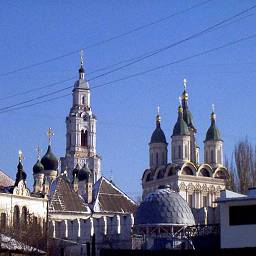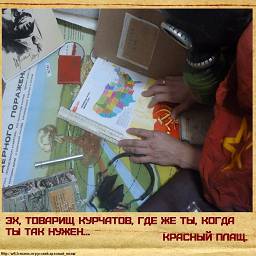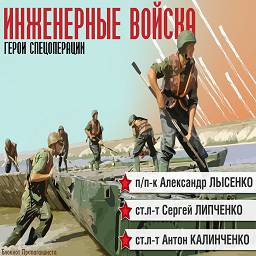Путь:
Quick Links
Language [ ENGLISH РУССКИЙ ]
Search
Продвинутый поиск
New Materials
- Ease of Implementation and Efficiency: The Advantages of DOBOT Collaborative Robots 2025-09-27
- Comprehending Viagra Soft: Advantages, Drawbacks, and Application 2025-01-24
- Affordable Instagram Growth with InstagFollowers.shop: Free Followers and Guaranteed Results 2024-12-18
- Buy instagram followers 2020-09-09
- FISCAL FEDERALISM THE CANADIAN EXPERIENCE 2020-03-22
- Analysis of differentiation of socio-economic development of the Russian regions 2020-03-22
- Economic development in the Russian regions: institutional and macroeconomic problems. 2020-03-22
- Russia's North: Economic Problems of Development 2020-03-22
- Problems of Fiscal Federalism in Russia 2020-03-22
- REGIONAL ASPECTS OF THE FEDERAL ECONOMIC POLICY 2020-03-22
- THE TELEVISIONS PROJECT 2020-03-22
- Journeys into History Through the Future 2020-03-22
- Artists Bring the Computer to Life 2020-03-22
- Culture in the Upcoming Millenium 2020-03-22
- What is a work of telecommunicative art 2020-03-22
Картинка недели
Union maniac
Evaluation section:
0
Union Punk is a wide circle of like-minded people who respect the era of the Soviet Union.
In many cities and countries of the former USSR there were fans who willingly share their memories with the same fans.
Proud of old times, constantly compare reality with the past.


Категории
CULTURE in St. Petersburg
Date of publication: 2017-10-18 12:52:37Дата модификации: 2017-10-18 12:52:37
Views: 1394
Author: admin
DISCUSSING CULTURE IN St. Petersburg is problematic for several reasons. As the city was conceived to be a window on the West through which Russia could adopt and adapt certain aspects of Western life, it would be somewhat farcical to call St. Petersburg a center of Russian culture. Petersburg is a combination of Europe with a Russian twist and Russia with a European twist, and as such it personifies Russia's perennial identity crisis as a country belonging neither to the East nor the West. This identity crisis, brought on by Peter the Great's bold reforms and dogging Russia throughout her history, continues to express itself today in the political struggle between reformist leaders who want to integrate Russia into the world community and nationalist ideologues who think Russia should "go her own way." Strange, since last time Russia boldly went her own way in 1917 the end result was Brezhnev. Which brings us to the point of this chapter: should you go to the ballet or just have a few beers in the park?
The answer of course depends on your taste. There is a rich selection of traditional cultural offerings that allow you to spend day after day at museums, galleries, and palaces and evenings at ballets, operas, classical music concerts, and folkloric performances, if this is the kind of thing that rubs your tater. Manifestations of 'popular' culture - film, jazz, rock, naked people wrapped in plastic throwing hamsters at each other - are fewer but they're here, and given the newfound wealth of the younger generation it would be safe to assume that over the next year more and more will appear.
Fifteen-day repertoires of all the major theaters are posted in theaters and in ticket booths. If you want to find out what is playing and can't figure out these schedules, ask any hotel service bureau or concierge desk for help.
Russians attending nicer events tend to dress up in their evening best so wearing shorts and a thrashed t-shirt will only attract scornful looks from the public and harsh words from the employees. You can get away with wearing jeans and sneakers though you will look like a slob. You must check your coat and larger bags at one of the cloakrooms, where you may be offered opera glasses for a symbolic fee. Flash photography during the show is absolutely forbidden as well as unbelievably rude, and if you fall asleep try not to snore too loudly as it may keep others awake.
TICKETS
Tickets for performances can generally be bought at ticket booths () throughout the city or inside the theaters themselves. Nevsky is home to several ticket booths which usually have the best tickets; the largest booths are at Nevsky Prospekt 42 and in the pavilion at the corner of Nevsky and Mikhailovskaya Ulitsa. Note that the availability of good tickets to popular or prestigious shows is severely limited and the best seats aren't usually sold in normal booths but rather for inflated prices by hotel service bureaus, tourist agencies, and speculators. If you don't speak Russian you may have some difficulties negotiating with all ticketing venues except those that make you pay out the nose, but here are a couple of tips:
Go to the theater in question when the kassa opens (usually 10:00) and see if they have anything available. You can also pick up tickets for shows a couple weeks in advance at the theater before they get sent around to agencies.
Ticket booths in the city are supposed to sell a certain number of tickets to all kinds of shows nobody wants to go to. Therefore they will be much more inclined to find the tickets you want for the Mariinsky Theater, even phoning around to other kassas, if you agree to pick up a few otherwise unwanted tickets as part of a package deal. These other tickets are called nagruzka (), which means "dead weight." Note that nagruzka shows are not necessarily totally bogus - sometimes you can get tickets to classical recitals at the philharmonic or other stuff that doesn't sell as well as the standard ballet 'n opera fare. Tell the ticket seller that you'll take what you're looking for s nagruzkoi (with dead-weight tickets), and the exciting world of cheap theater tickets will suddenly open up to you.
Same-day and next-day tickets for various performances, when still available, are stuck in the kassa window under a sign saying (tonight) and (tomorrow). Though these won't be front row seats at the Mariinsky, they may be interesting or can serve as nagruzka tickets.
Tickets that don't get sold at city kassas are sent back to the theater and go on sale one hour before the performance at the kassa marked . Needless to say, counting on this option for popular offerings is nearly hopeless, though for drama or classical performances you may have a chance.
Sometimes scalpers hang out in front of popular theaters selling cheaply acquired tickets for grossly inflated prices (though not as grossly inflated as the surcharge stuck on tickets by hotels). Check carefully the date on every ticket and make sure the location suits you before forking over your cash. Scalper markups are generally between $10 and $30 per ticket, depending on the performance and on your suit designer.
Tickets have all kinds of strange things written on them describing where you're supposed to sit. Elevation is marked by either (ground floor), (next floor up), or or (balcony). means left side, means right. literally means "behind the seats" and usually signifies standing-room-only, or just before the show begins someone might produce some creaky chairs for you. If you're confused an usher can lead you to your seats. Ticket scalpers love to produce little maps of the theater and explain that the fifth seats he has for $20 each are actually front-row center.
ROCK AND POP
Myth has it that all forms of popular music were perceived by zealous Soviet Cultural Ministry authorities as decadent imperialist propaganda and all of its vestiges mercilessly persecuted. This is not exactly true. The authorities helped foster a serious schism between rock (rebellious or nihilistic music emphasizing lyrical content or built-up angst) and pop (flashy, image-oriented danceable tunes with happy-go lucky, inane lyrics). The former was ruthlessly persecuted for its anti-establishment attitude and associations with drugs, decadence, and free thought. Authorities persecuted rockers for spreading "imperialist infections" by withholding stipends, expelling them from institutes and universities, and firing them from work. They even went so far as to pick up hippies off the street and forcibly cut their hair. In contrast, pop music was encouraged in order to give the younger generation * objects of hero worship with more rhythm than Lenin. The unfortunate result of the Politburo's desperate attempt to be hip is that Russian pop, popsa as it is derogatorily known, rivals French pop music as one of the most valid justifications for the institution of strict censorship.
Western musicians were represented in the Soviet Union almost exclusively by celebrities of the Eastern European stage such as Bulgarian megastars Lili Ivanova and Biser Kirov, and various Polish "Fab Fours" who sang popped up versions of Western hits. Occasionally a real Western group would be deemed acceptable by the authorities and would get some airplay, which led to the overblown popularity of groups like Boney M, the Bee Gees, Modern Talking, and ABBA. One of the sad results of this programming is that these four groups are deeply embedded in the 'cool' (i.e. non-Soviet) section of the collective subconscious and thus can still be heard on the airwaves here after years of virtual banishment in the West.
Since the advent of glasnost rock has crawled out of the underground and onto the airwaves and into the shops, and the old makeshift records made from x-ray photographs (known as records "on bones" na kostyakh) are relics of the past. A number of radio stations play a pretty wide mix of music, from the latest western hits to oldies and lots of Russian music to boot.
FOLK MUSIC
For people who want to see a full-blown folkloric show including numerous Cossack dances, traditional Slavic songs, a very professional band, and a funny Russian chicken-dance, it is well worth attending a performance put on by the art center Terem. Concerts, held almost every day during the summer, are publicized by posters and pamphlets, and hotel service bureaus can arrange tickets. Be sure to ask for them by name so you don't get sent to another group. Performances are held in the House of Friendship (Dom Druzhby | ) at Naberezhnaya Reki Fontanka 9) and at the Beloselsky-Belozersky Palace. For information on concerts and to order tickets
FILM
The advent of the free-market and the lifting of the censorship has been financially devastating for Russian film. Commercial reality has forced Russian theaters to abandon the works of their compatriots in favor of the worst of cheap Hollywood trash. Sometimes quality Western films appear, usually stolen or crudely pirated. That's not all; foreign films are mercilessly dubbed into Russian, usually with one voice reading all the parts. Trying to glean the original dialogue behind the dubbing requires concentration that detracts from the film's enjoyment and even then you're unlikely to hear more than half the original dialogue. In a worst case scenario there will be a live dubber who stands near the screen with a microphone and gets tongue-twisted at the most important parts.
Still, if you look hard enough you can find some excellent Russian and Soviet films. These are shown with great rarity on the movie theater circuit; check newspapers like , or , , for listings. The Spartak Theater at Ulitsa Saltykova-Shchedrina 8 is a revival-movie house, showing the best of old Russian and Soviet films as well as Western classics. Before the film a bespectacled grey-haired man talks for about fifteen minutes about the artist, the world of film in general, his recent surgery, and a whole series of unrelated subjects.
CLASSICAL MUSIC
Petersburg is and has always been a major European center for classical music. Big shots like Rachmaninov, Glinka (the father of Russian classical music), Tchaikovsky, Mussorgsky, Prokofiev, Rimsky-Korsakov, and Shostakovich all lived and composed here. Some of them even decomposed here and are buried in the Tikhvin Cemetery in the Alexander Nevsky Monastery. Special music schools set Russian kids on the musical path at a young age (four or five years old). Students from all over the world flock to the Conservatorium, and a diploma from here is considered quite prestigious amongst classical music wonks. Every June during the White Nights Festival orchestras, chamber ensembles, and soloists come to Petersburg to perform. Tickets to classical performances are easier to obtain than ballet or opera tickets as they are less in demand, though if there is a special performance you may have to resort to paying outrageous agency prices.
The Shostakovich Philharmonic Hall (also called the Bolshoi Zal, or Big Hall). The St. Petersburg Academic Orchestra, which due to emigration is a shadow of its former greatness, performs here as do various other groups and soloists. Every now and then a touring orchestra will perform here too, and tickets for these are quite difficult to come by. Before the Revolution this building was a meeting place for the Boyar Council (leading aristocratic families) and thus the acoustics, though adequate, are not ideal. In addition to evening concerts there are sometimes less formal daytime performances on weekends. Mikhailovskaya Ulitsa 2. Metro: Nevsky Prospekt.
The cozier Glinka Maly Zal (Small Hall), as part of the philharmonic complex, also has fine concerts and the acoustics here are better than in the Bolshoi Zal as it was designed specifically for performances. Nevsky Prospekt 30. Metro: Nevsky Prospekt.
Concerts are also held in the Conservatorium, just across the square from the Mariinsky Theater. Student ballets and operas are performed in the Opera Hall, and they have a Maly Zal of their own where on Sunday mornings at 10:00 student concerts and open rehearsals are held. Teatralnaya Ploshchad 3. Metro: Sadovaya then a 15 minute walk.
The Capella houses a small concert hall where one can hear recitals, small orchestras, choirs, and solo performances. The house choir sings the Sunday services in the Preobrazhensky Cathedral. Naberezhnaya Reki Moika 20. Metro: Nevsky Prospekt.
It has also become quite trendy to hold evenings of chamber music in various museums and palaces around town such as in Dvorets Kompozitorov at Ulitsa Bolshaya Morskaya 45 and in the Kshesinskoi, Beloselsky-Belozersky, and Yusupovsky Palaces. These are advertised on posters around the city and at the actual palaces themselves, and entry is usually either free or for a symbolic sum.
Evaluation of the document:
0
Article description: DISCUSSING CULTURE IN St. Petersburg is problematic for several reasons.
Albums:
Other articles of the section: Union maniac
Previous HISTORY OF ST. PETERSBURGNextWho are the Russians in 1997
Similar articles:
Новые альбомы:
Nested sections




_cоветский_совьет_панк_моддинг.jpg)
_известные_бренды_на_советский_манер.jpg)

_косплей_совьет_панк.jpg)

_стенгазета_союз-маньяка.jpg)
_юмор_в_стиле_союз-маньяк.jpg)

